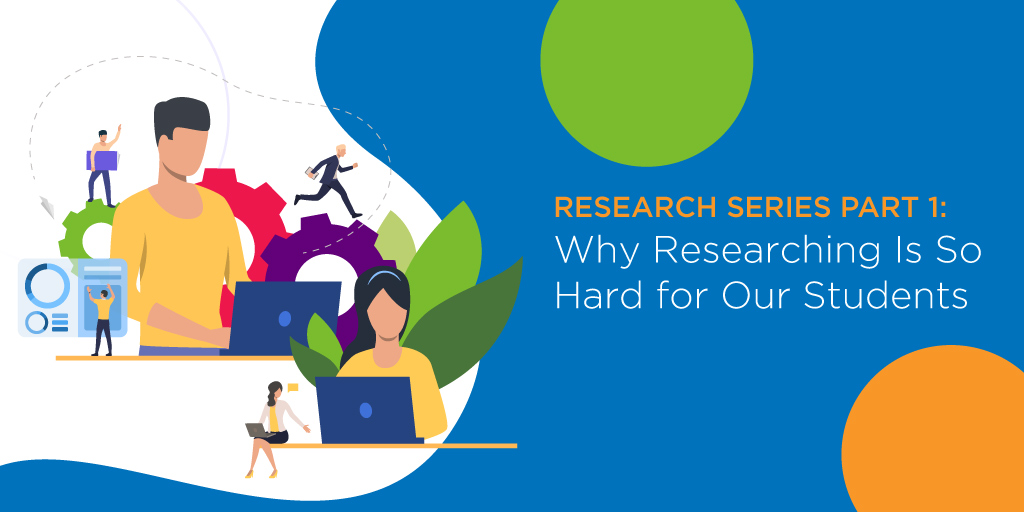
Teaching students how to research is more difficult than it has ever been. Common Core standards emphasize research skills, which help to support complex and critical thinking for our students. It’s a good thing to teach, but can be a very hard thing to learn. There are many reasons for this challenge, as well as why it’s getting harder all the time for our kids.
First, it is true that there are literally millions of resources for students to access at the click of a button. But while the speed and ease of this can seem like a great thing, it creates huge challenges for our students. The sheer volume of options is overwhelming. This challenge is also an opportunity for really digging into how to search well, but needs a great deal of instruction and structure to create this success.
Beyond just the issues of the quantity of resources are issues with the quality of resources. Throughout our country, we see more and more the pressing issue of fake news and unreliable sources. Some of these items are intended to deliberately mislead the reader. Students have to be able to consume information in a critical and discerning way, which is also hard for adults at times. This study from NPR shows clearly that this is not only something that students cannot do well, but also something that they need support with.
The final challenge for teachers is how conditioned our students are with the ease of use of most everything in their lives. This isn’t just an issue with researching—teachers can often feel as though students are willing to give up when any task becomes too difficult. With a challenging and complex task like researching, students are even more likely to want to try to just get it done so they can move on to the next task at hand.
Identifying the Issues
I feel it is important to admit from the forefront that because of all these factors, researching can be a very hard skill for students—they have to persevere through it in order to actually do it well. I stress this part because teachers have to be ready for the support that students will need when heading into a research project.
Here are some of the common problems I have experienced when doing research with students:
- One of the main obstacles for students when trying to find information is time, in that they don’t spend enough time trying to find resources. For most students, even at the secondary level, the first page of a Google search is all they ever consider. If they find something they like within the first one or two sites, they call it quits and move on. Students think the magic of a Google search will provide just what they need the first time they search.
- The same is true of the search itself. If a student is researching dolphins, they will usually type the word “dolphins” into the search field to see what comes up. This isn’t necessarily a bad place to start, but normally a search would need more specifics in order to help the student find what they are looking for.
- Once a student finds something that might be helpful, they sometimes don’t actually read the article. This might seem crazy to some of us, but I have seen it in action. A student who finds a sentence that can be quoted in the essay will pull that piece out, cite the source, and move on with the assignment.
- Finally, the sources that students find are not all created equal. We know this as educators and media consumers, but students need to be taught the aspects of a reliable source and what makes something possibly unreliable. This is a complex skill and requires a close reading of the text (see bullet point above). But even if a student reads some informational text, it might not be credible enough for them to actually use in their paper.
These are just a few of the common mistakes that students run into as they try to turn research into something clear and readable for their audience. Where is a teacher to start with finding solutions to these issues (and even more)?
Look for the second part of our Research Series, where we’ll dive into what educators can do about the struggles students face when researching. Subscribe to our Educator blog to make sure you don’t miss it!


